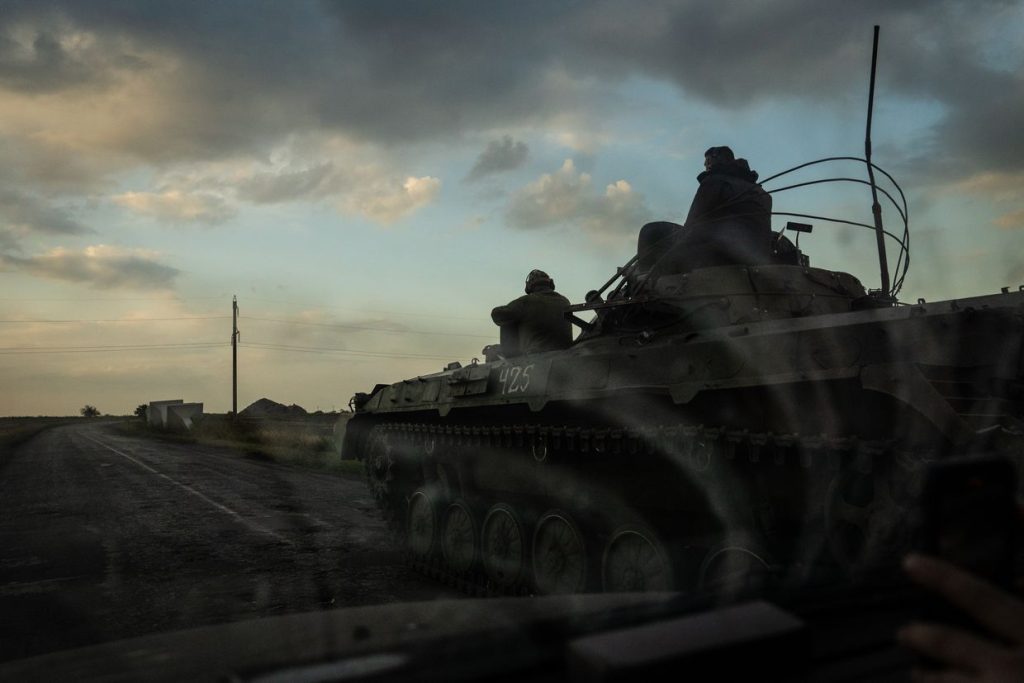Janek Kesselmann, the deputy commander of the Estonian Military Intelligence Center, reported on Oct. 4 that Ukrainian troops in the city of Pokrovsk in Donetsk Oblast may be forced to withdraw. The area near Pokrovsk has been a focal point of Russia’s offensive in Donetsk Oblast, with Russian forces advancing to within 7 kilometers of the town. Over the past week, there have been an average of 167 Russian attacks per day on the front line, with 50% targeting the Donetsk direction. Kesselmann predicted that if this intensity continues, Ukrainian forces may have to withdraw from Pokrovsk by the end of 2024.
The capture of Vuhledar by Russian troops was identified as a significant event in the recent conflict by Kesselmann. The town had been defended by Ukraine’s 72nd Mechanized Brigade for nearly two years and was key to Ukrainian defenses in the southern part of Donetsk Oblast. After withstanding multiple attacks, Russian forces managed to capture Vuhledar on Oct. 1, leading to the withdrawal of Ukrainian forces. Kesselmann stated that Ukrainian units have taken defensive positions about 7 to 8 kilometers to the north, following the loss of Vuhledar.
Residents of the northern part of Donetsk Oblast are facing a dire situation as a result of Russian attacks, with around 13,000 people remaining in Pokrovsk during ongoing evacuations. The town’s population has significantly decreased from around 60,000 in January 2022, and the lack of a water supply is adding to the challenges faced by residents. The security situation in the region has led to the closure of Pokrovsk’s train station for civilian evacuations, with evacuations now being facilitated from the station in Pavlohrad, 100 kilometers away.
The intensifying conflict in the Pokrovsk region has left Ukrainian soldiers desperately defending the city against Russian forces. The area has seen increased military activity, with numerous attacks targeting Ukrainian positions. The town’s strategic importance as a logistical hub for Ukrainian forces has made it a prime target for Russian advancement. The evacuation of civilians from the area is ongoing, with efforts to ensure the safety of residents amid the escalating violence and instability in the region.
The situation in Donetsk Oblast is evolving rapidly, with Russian forces making significant advances in key strategic areas. The ongoing conflict has resulted in the loss of important towns like Vuhledar and the potential future withdrawal of Ukrainian forces from Pokrovsk. The impact of the conflict is not only military but also humanitarian, with thousands of residents facing displacement and a lack of basic necessities like water supply. The international community continues to monitor the situation closely, with concerns growing about the escalating violence and its implications for the region.
As the conflict in Donetsk Oblast continues to escalate, the need for a diplomatic resolution becomes increasingly urgent. Efforts to negotiate a ceasefire and find a peaceful solution to the conflict are paramount to prevent further loss of life and displacement. The resilience of Ukrainian forces in defending key areas like Pokrovsk and Vuhledar against Russian aggression is commendable, but the challenges they face are significant. The international community must rally behind Ukraine and support efforts to de-escalate the conflict and seek a lasting peace agreement in the region.


